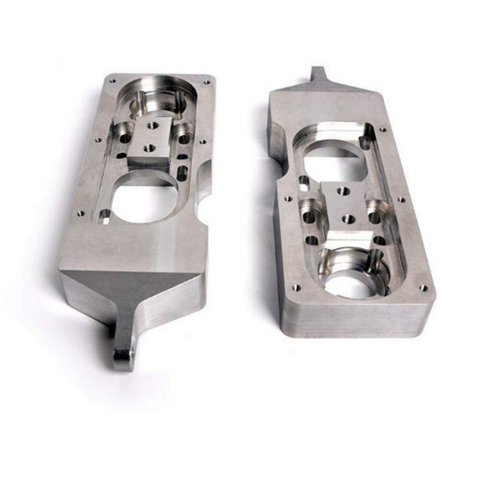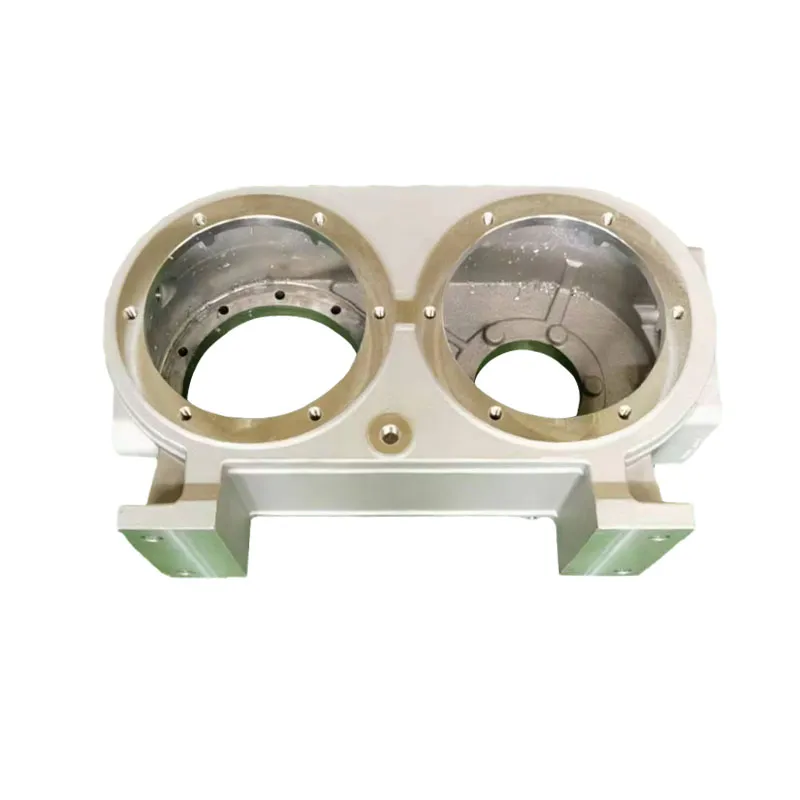The art behind Precision aluminum casting for industrial applications
The Role of Aluminum Foundries beforehand Lightweight Production Solutions
Aluminum shops substantially contribute to the development of light-weight production services. Their innovative spreading innovations yield high-strength, lightweight elements necessary for markets such as automobile and aerospace. This innovation not just boosts product performance but also advertises sustainability with using recycled materials. As these factories adapt to emerging technologies and practices, they lead the way for future developments in producing performance and ecological duty. What exists in advance in this transformative journey?
The Advantages of Lightweight Products in Manufacturing
As industries progressively look for performance and sustainability, the fostering of lightweight materials in manufacturing has actually become a crucial approach - aluminum casting. These materials, particularly aluminum and compounds, use countless advantages that improve production procedures and product performance. Primarily, their lowered weight contributes to lower power intake during transportation and procedure, leading to substantial cost savings
Lightweight products promote the style of more facility geometries, enabling for greater innovation in item growth. This adaptability usually causes improved capability and efficiency, dealing with the advancing needs of modern customers.
Furthermore, the use of light-weight materials can boost the long life of products due to their resistance to corrosion and fatigue. This resilience not only decreases maintenance expenses however also supports sustainability campaigns, as longer-lasting products add to less waste. To summarize, the benefits of light-weight products are pivotal in driving effectiveness, advancement, and ecological responsibility in production.
Developments in Light Weight Aluminum Spreading Technologies
Recent improvements in light weight aluminum spreading modern technologies are reinventing the production landscape, especially in the production of light-weight elements. Technologies such as high-pressure die casting and vacuum cleaner die casting have considerably enhanced the precision and surface area coating of light weight aluminum parts - Aluminum Casting Company. These techniques permit the development of complicated geometries while minimizing material waste and boosting mechanical homes

In addition, the application of real-time monitoring systems guarantees high quality control throughout the casting process, causing more constant item results. Collectively, these advancements not only improve the performance of aluminum parts however also support the market's change towards even more lasting production methods.
Applications of Aluminum Parts in Various Industries
While aluminum components have actually long been made use of in numerous sectors, their convenience and lightweight homes continue to drive innovative applications throughout sectors such as automobile, aerospace, and building. In the automotive sector, aluminum is significantly utilized for engine blocks, wheels, and body panels, boosting fuel efficiency and performance. Aerospace makers utilize aluminum for aircraft frameworks and parts, maximizing its strength-to-weight proportion to improve gas economic climate and payload capacity.
In the construction sector, light weight aluminum is favored for window frameworks, roof, and structural components, offering durability and resistance to corrosion while decreasing total building weight. Additionally, the electric and electronics markets take advantage of aluminum's conductivity and light-weight nature, utilizing it in wiring, rooms, and heat sinks. These diverse applications highlight the critical role of light weight aluminum parts, which not only satisfy industry needs yet additionally contribute to developments in item style and capability throughout several areas.
Sustainability and Power Performance in Light Weight Aluminum Foundries
The aluminum foundry market plays a vital role in advertising sustainability and power efficiency, particularly as demand for light-weight elements proceeds to grow across various sectors. Factories are increasingly taking on environmentally friendly techniques, such as using recycled light weight aluminum, which greatly minimizes energy usage and greenhouse gas emissions contrasted to key light weight aluminum production.
Improvements in casting modern technologies boost power effectiveness by maximizing the melting processes and decreasing waste. Techniques like die spreading and financial investment spreading enable for precise product use, lessening excess and scrap.
In addition, lots of factories are purchasing eco-friendly power resources to power operations, even more reducing their carbon footprint. Executing power administration systems enables foundries to keep an eye on and improve power usage, ensuring they operate at peak performance.

Future Trends in Lightweight Production Solutions
Exactly how will arising innovations shape the future of lightweight production services? Developments such as innovative materials, automation, and additive manufacturing are set to aluminum casting redefine production processes. The assimilation of wise manufacturing technologies, consisting of the Web of Points (IoT) and fabricated intelligence (AI), will certainly enable real-time tracking and optimization, improving efficiency and lowering waste.

As sustainability continues to be a critical concern, lightweight remedies will increasingly concentrate on recycling and recycling products, lining up with circular economic climate principles. This evolution in lightweight production will not only enhance product performance but additionally add to ecological objectives, making sure that the sector stays affordable in a quickly altering market landscape.
Regularly Asked Questions
How Do Light Weight Aluminum Foundries Make Sure High Quality Control in Production?
Light weight aluminum factories assure quality assurance in manufacturing with extensive screening, standard procedures, and constant monitoring - aluminum casting. They implement knowledgeable personnel and innovative modern technologies to maintain consistency, reduce issues, and meet market requirements throughout the production procedure
What Are the Main Challenges Encountered by Aluminum Foundries?
Light weight aluminum factories encounter obstacles such as varying basic material prices, keeping manufacturing effectiveness, making certain regular high quality, adapting to technical advancements, and meeting environmental regulations, all of which impact their total operational effectiveness and competition in the marketplace.
Just How Does Light Weight Aluminum Recycling Effect Foundry Procedures?
Aluminum reusing considerably improves shop procedures by decreasing raw product costs, reducing power usage, and lowering ecological influence. This sustainable technique enables shops to enhance performance while fulfilling boosting need for lightweight, high-performance aluminum items.
What Abilities Are Needed for Employees in Aluminum Foundries?
Workers in light weight aluminum foundries require abilities in metallurgy, machining, quality assurance, and safety techniques. Efficiency in operating equipment, recognizing alloy residential or commercial properties, and analytical are likewise important for effective production and keeping high safety requirements.
Exactly How Do Light Weight Aluminum Foundries Handle Waste Management?
Light weight aluminum foundries take care of waste through reusing scrap steel, utilizing reliable waste segregation techniques, and adhering to environmental guidelines. They carry out lasting practices to minimize garbage dump contributions, guaranteeing that harmful materials are thrown away responsibly.
Aluminum foundries substantially add to the evolution of lightweight manufacturing remedies. Recent developments in aluminum casting technologies are reinventing the manufacturing landscape, particularly in the production of lightweight parts. While light weight aluminum elements have actually long been made use of in various sectors, their adaptability and lightweight properties proceed to drive ingenious applications across markets such as automotive, aerospace, and building and construction. In addition, the electrical and electronic devices markets benefit from light weight aluminum's conductivity and light-weight nature, utilizing it in electrical wiring, enclosures, and warm sinks. The light weight aluminum shop sector plays a crucial function in advertising sustainability and energy effectiveness, especially as need for lightweight components proceeds to expand throughout different markets.